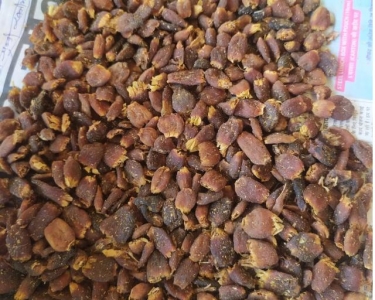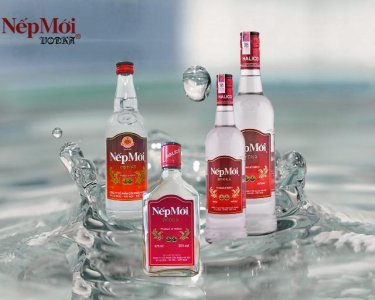Herbs and spices
Couldn't find the product you want?
Fill out this form to request the product.
Products You May Like
Export from United Arab Emirates
The UAE's economy is the most diversified in the Gulf Cooperation Council, with its most populous city of Dubai emerging into a global city and international aviation hub. Nevertheless, the country remains extremely reliant on its export of petroleum and natural gas. The UAE's oil reserves are the seventh-largest in the world, while its natural gas reserves are the world's seventeenth-largest. The late Sheikh Zayed, ruler of Abu Dhabi and the first President of the UAE, oversaw the development of the Emirates and steered oil revenues into healthcare, education and infrastructure.
Although United Arab Emirates have the most diversified economy in the GCC, the UAE's economy remains extremely reliant on oil. With the exception of Dubai, most of the UAE is dependent on oil revenues. Petroleum and natural gas continue to play a central role in the economy, especially in Abu Dhabi. More than 85% of the UAE's economy was based on the oil exports.
UAE law does not allow trade unions to exist. The right to collective bargaining and the right to strike are not recognized, and the Ministry of Labor has the power to force workers to go back to work. Migrant workers who participate in a strike can have their work permits cancelled and be deported.
United Arab Emirates' economy is highly dependent on the exports of oil and natural gas (40 percent of total exports). Others exports of UAE include pearls and other precious metals and stones, machinery, sound recorders and parts, transport vehicles.
Main export partners of UAE are Japan, India and Iran, South Korea, Thailand and Singapore.
Import to United Arab Emirates
The economy of the United Arab Emirates is the second largest in the Arab world (after Saudi Arabia). The United Arab Emirates has been successfully diversifying its economy. 71% of UAE's total GDP comes from non-oil sectors. The UAE is a member of the World Trade Organization and OPEC.
Dubai suffered from a significant economic crisis in 2007-2010 and was bailed out by Abu Dhabi's oil wealth. Dubai's current prosperity has been attributed to Abu Dhabi's petrodollars. Dubai is currently in extreme debt. Tourism is one of the main sources of revenue in the UAE, with some of the world's most luxurious hotels being based in the UAE. Although the UAE is now less dependent on natural resources as a source of revenue, petroleum and natural gas exports still play an important role in the economy, especially in Abu Dhabi. A massive construction boom, an expanding manufacturing base, and a thriving services sector are helping the UAE diversify its economy. Nationwide, there is currently $350 billion worth of active construction projects.
UAE top imports are gold, jewelry, broadcasting equipment, cars and refined petroleum.
Main import partners are India, China and United States, Germany, Japan and South Korea.
Spices make food taste great, they make its flavor bitter or sweet, spicy or specific and strange. A spice is a seed, fruit, root, bark, berry, bud or vegetable substance primarily used for flavoring, coloring or preserving food. A spice may have other uses, including medicinal, religious ritual, cosmetics or perfume production, or as a vegetable.
Herbs have a variety of uses including culinary, medicinal, and in some cases spiritual usage. General usage of the term "herb" differs between culinary herbs and medicinal herbs. In medicinal or spiritual use any of the parts of the plant might be considered "herbs", including leaves, roots, flowers, seeds, resin, root bark, inner bark (and cambium), berries and sometimes the pericarp or other portions of the plant.
If you are intended to sell spices online, do it on Export Portal! We provide a place for safe trade and finding customers worldwide.
Herbs can be perennials such as thyme or lavender, biennials such as parsley, or annuals like basil. Perennial herbs can be shrubs such as rosemary, Rosmarinus officinalis, or trees such as bay laurel, Laurus nobilis – this contrasts with botanical herbs, which by definition cannot be woody plants. Some plants are used as both herbs and spices, such as dill weed and dill seed or coriander leaves and seeds. Also, there are some herbs such as those in the mint family that are used for both culinary and medicinal purposes.
Some plants contain phytochemicals that have effects on the body. There may be some effects when consumed in the small levels that typify culinary "spicing", and some herbs are toxic in larger quantities. For instance, some types of herbal extract, such as the extract of St. John's-wort or of kava can be used for medical purposes to relieve depression and stress. However, large amounts of these herbs may lead to toxic overload that may involve complications, some of a serious nature, and should be used with caution. Sell herbs online on our site, expand your business overseas!
If you want to buy spices online, you are in the right place. Sellers from all over the world offer a wide range of spices on Export Portal.
- Dried herbs and spices: asafetida, allspice, cardamom, cayenne pepper cinnamon, coriander seed, cumin, fennel seed, garlic powder, ginger, oregano, paprika, rosemary, turmeric, black pepper.
- Fresh herbs: basil, curry leaves, dill, mint, parsley.
- Spice blends, rubs and mixes: baharat, chili powder, chinese five-spice powder, curry powder, herbes de provence.
Shop for food products online on Export Portal, make the best choice! Trade with Export Portal for the best results and increase your profits!
Customs requirements of United Arab Emirates
Dubai Customs Contacts
Website: http://www.dubaicustoms.gov.ae/en/Pages/default.aspx
Email: client.relations@dubaicustoms.ae
Address: Dubai Customs Headquarters, Al Mina Road, Dubai, United Arab Emirates, PO Box 63 Dubai
Telephone: +9714 417 7777
The United Arab Emirates is a country situated in the southeast end of the Arabian Peninsula on the Persian Gulf, bordered by Oman, Saudi Arabia, Qatar and Iran. The UAE is a member of the International Chamber of Commerce, Organization of Petroleum Exporting Countries, United Nations Conference on Trade and Development, World Customs Organization, World Trade Organization and other international organizations.
Tariffs
A customs duty of 5% is generally levied on imported goods (a number of categories are exempt, some agricultural products and pharmaceuticals) and luxury goods such as tobacco is 50-70%.
A number of UAE ‘free zones’ have been established, where customs duties are not payable, such as Dubai International Financial Centre (DIFC) or Jebel Ali port. Goods may only be imported by an entity which is registered in the UAE.
Import restrictions
Only companies in the UAE that have the appropriate trade licence can import products into the country. Import controls exist for a number of products including alcoholic beverages, pork and pork products, medicinal substances, printed matter such as magazines and videos, photographic material, firearms and fireworks.
The entry of many kinds of products has been banned in accordance with the local values, religious beliefs and morals. The following items are prohibited:
- goods manufactured in Israel
- pornographic literature
Special permission is required for the import of:
- alcohol
- drugs
- firearms
- ammunition and explosives
- agricultural pesticides
- industrial alcohol-denatured
- methyl alcohol
- methylated and medicated spirits
Product certification, labelling and packaging
Packing, marking and labelling
Goods should be packed to provide protection against extreme heat and humidity, storage in the open and possible unloading into lighters.
The UAE Ministry of Health requires all pharmaceutical imports to be carried under temperature controlled conditions of 25 degrees centigrade.
Outer containers should bear the consignee's mark and the port mark in Arabic, this is essential, as most wharf labourers cannot read English.
Labels of imported goods/food need to have the following standard information and should be in English and Arabic:
- product and brand
- ingredients, in descending order of proportion
- additives using their 'E' numbers (group names are also accepted)
- the origin of all animal fats
- net contents in metric units
- production and expiry date
- country of origin
- manufacturer's name and address
- special storage and preparation instructions, if any
Documentary requirements
Required documents for clearance:
- Valid and relevant trade license copy
- Delivery order from the shipping or line agent
- Commercial invoice
No prescribed form. Certification by an approved authority may be requested. The invoice must indicate:
- country of origin
- a full description of the goods, including net and gross weights, unit and total value, and details of the packing and should match the details on the bill of lading
- name of the manufacturer
- Bill of lading
The appropriate tariff number should be shown. This should ensure the correct freight rate is applied to the items shipped.
Original copy must be furnished (two original copies minimum).
Original bill if ladings have to be endorsed by the shipper. In case they are not endorsed, a full set (usually three) of originals need to be surrendered to the line.
- Packing list
A packing list is required, but there is no prescribed format.
- Certificate of origin
The certificate of origin must include the name and address of the manufacturer.
At the time of clearance, in case of original commercial invoice, if the certificate of origin and packing list is not available, clearance can be affected on the strength of photocopies and a deposit, which can be claimed back if the originals are submitted within 60 days of filing the bill of entry.
Public health requirements
Livestock are inspected upon arrival.
Agricultural pesticides may only be imported by a registered importer holding a valid import licence.
Imports of pharmaceutical products are subject to specific transport regulations.
Food containing cyclamates is prohibited from entering Abu Dhabi and although there is no legislation prohibiting such food from entering Dubai, the practice is not encouraged.
Sources:
http://www.dubaicustoms.gov.ae/en/Procedures/CustomsDeclaration/Pages/Export.aspx
http://www.dubaicustoms.gov.ae/en/Procedures/CustomsDeclaration/Pages/Import.aspx





